Last Updated on August 2, 2021

Welcome to The Best Movie You NEVER Saw, a column dedicated to examining films that have flown under the radar or gained traction throughout the years, earning them a place as a cult classic or underrated gem that was either before it’s time and/or has aged like a fine wine.
This week we’ll be looking at THE PROPOSITION.

THE STORY: After his capture, a criminal in 1880s Australia is given a chance to save his younger brother from hanging if he agrees to hunt down his vicious elder brother.
THE PLAYERS: Writer Nick Cave. Director John Hillcoat. Composers Nick Cave & Warren Ellis. Actors Guy Pearce, Ray Winstone, David Wenham, Emily Watson, Danny Huston, John Hurt, Noah Taylor, David Gulpilil.
THE HISTORY: Director John Hillcoat kicked off his filmmaking career in style by becoming the youngest director ever to have their work accepted by the Toronto Film Festival with the submission of his short film THE FINGER. After meeting and working with musician/poet Nick Cave, Hillcoat asked him to compose the score for a "uniquely Australian western" he wanted to make one day. As the development process drew on, and Hillcoat made two other features while also further honing his skills doing music videos for the likes of Souixsie and the Banshees, Placebo, and Depeche Mode, Cave eventually asked if he could take a crack at the script himself. The go was given, Cave set to work, and in 2004 Hillcoat finally made the film.
Of course no shoot is ever that easy, and THE PROPOSITION was no exception. The filming location was three hours by plane and three hours by bus, buried in the interior of Australia and described by John Hurt as "like eternity, like another planet." Shooting took place in the summer, which meant that during the day temperatures climbed as high as 57 degrees Celsius (137 degrees Fahrenheit). When the cameras finally became too hot to even touch the decision was made to shoot as much of what remained at night, but everyone involved found that the discomfort (and the thousands of incessantly hovering flies) brought home the harshness of life in a place like this and added a layer of grit and grim reality that positively impacted performances both before and behind the camera. The production budget of $2 million was almost made back by the film's 2006 domestic run alone with a further $3 million coming in from its international run, and THE PROPOSITION has gone on to be lauded as a benchmark entry in the subgenre called "the revisionist western" – a run that includes 1972's ULZANA'S RAID, 1992's UNFORGIVEN, and this Christmas' release of THE HATEFUL EIGHT.

I think there was something very animalistic about this film; it really was like a pack of wild dogs living out in the dust […] it's just one of those things, [the film] tries to break down the typical idea of family. People say, 'Love goes beyond any boundaries' or whatever and people tend to judge criminals and say 'They don't know how to love' or 'They're outcasts and they don't deserve what we have or what we deserve to have in our lives' and I reckon that's a load of crap. I think you get what you deserve and you deserve what you get and you get what you think you're owed; it doesn't matter what form it comes in. I guess it's the whole idea of what's good and what's bad and it's just really hard to pinpoint that sometimes and I think films think they've pinpointed that really too conveniently and too easily; I think this film threw it all up against a wall – splat! – and went well, it's still family. So I just like the rawness of that. – Guy Pearce
WHY IT'S GREAT: The western is a modern mythology. This isn’t news. But in light of today’s film, it’s worth takinga moment to recap why. In many of the classic western stories – Davey Crockett, The Alamo, Billy the Kid – the characters are larger than life, the odds often verging on impossible, the land itself an enemy to be tamed. Decade-long dramas of blood vengeance play out against striking scenery, expert gunslingers lay down a justice drawn from somewhere beyond the minds of men, and outlaws snatch at the last scraps of freedom they can for love, glory, and peace before the boot of civilization stamps out the wildness of land and heart. For those of us who were born after the fact brutal truths soon became tall tales, the tall tales themselves transforming as those doing the telling imbued characters and challenges with their own beliefs, doubts, fears, an hopes. By the time 2005 rolled around the mythology had seen many revisions, filtered through so many horrors and innovations of a skyrocketing 20th century that anything resembling the cleanly heroic stories of yore had lost its taste and those westerns that did succeed capitalized on the violence and questionable morality that did in truth define the time of the source material.
What THE PROPOSITION did was make the stakes more stark and the problem more personal. Lead actor Guy Pearce himself has said he had trouble finding his character of Charlie Burns until he realized that what he needed to do was simply respond honestly to what he was given by the other actors so that the audience could slip into his dusty boots and ask themselves what they would do if given such a choice as him. To save his younger brother from hanging he must track down his elder brother – a man more psychotic, more learned, and more loving than anyone else we or Charlie will meet in the course of the film. Which is a contradiction that is part and parcel to this warped world, and one that’s actually closer to the vagaries of reality than many of the stories or films that came before it. The film is fundamentally about people, and it is this very wounded but still beating heart that drives THE PROPOSITION into a territory all its own.

I can only understand him if I think about the environment back then, in the 1880s in the middle of the Australian desert, with all the harsh environmental elements at play there, and the fact that all these people from England and Ireland and wherever happened to have come to this part of the world. They were essentially aliens, and they were fighting against this landscape, so I can understand that there was lawlessness so he had to put in place a system that was black and white purely for survival. From that point of view, I can understand him. But through today’s eyes and today’s social conscience and the morality of today, nah, he obviously comes across as a heartless son of a bitch. – David Wenham
The film concerns itself with the aftermath of a rape and murder perpetrated by the Burns Brothers – gentlemen of generally Irish descent (something kept purposefully non-specific in the script) Mike, Charlie, and Arthur. Mike and Charlie are captured, with Charlie given the titular proposition by Ray Winstone’s Captain Stanley: Mike will hang on Christmas Day unless Charlie agrees to find and kill his psychotic older brother. So Charlie rides out, away from the Machiavellian tactics of civilization as it struggles to survive in this inhospitable somewhere and into the back end of the human heart. Madness and love, family and murder, fortune hunters and abusers, sacrament and sacrilege all co-exist out there, and it quickly becomes abundantly clear that what Burns has left behind is no different than what he has found.
That’s how you know you’re in Nick Cave country, hearing the kind of story from the kind of misshapen mouth that he writes so well. While the inherent truth Charlie comes to terms with may not be unique to this western, the way in which it happens absolutely is. Through his guiding hand that THE PROPOSITION establishes an identity that transcends those of engaging film or Australian western or period piece. You may come to THE PROPOSITION for John Hillcoat’s direction, to study how orchestrates the film’s rhythms with supreme confidence. Conversely, you may come for the performances, following Guy Pearce or Danny Huston or Emily Watson or David Wenham (or anyone else) as they turn in career-best work through performances that radiate the same heat – and hint at as much hidden life – as the land itself. Or maybe you come for the score because you’ve heard the collaborative compositions of Nick Cave and Warren Ellis in other films like THE ASSASSINATION OF JESSE JAMES BY THE COWARD ROBERT FORD or THE ROAD. Whatever the case, whatever your cause, the reason you’ll stay is because of Nick Cave’s work on the script. The characters you’ll encounter the language they’ll speak, the choices they’ll face and the reasons they’ll act as they do, all are as damning as they are sympathetic, as frightening as they are caring, as twisted as they are necessary. The human condition is put to its ultimate test in this ragged place, and with every step the soul is at stake. World building and character crafting are at their finest here, imbuing whatever identity the film might have originally been meant to have with something unique and so much more. Something nightmarishly enchanting. Something which no other entry in the genre can claim, because only Nick Cave could do it.

Aboriginals are usually portrayed in films as people who exist to show white people what the Aboriginal situation is, rather than as being an integral part of the film itself. There’s always an agenda. They were extremely excited about being part of a film without the politics. At the same time, it showed things that pretty much aren’t shown in Australian films, particularly black on black violence. Especially black on black violence. And that there was a resistance, to be in a film where there was an opportunity to fight back, to kill a few whites, those things are rarely portrayed in Australian films. – Nick Cave
THE PROPOSITION also boldly joins a very small club of films that includes DEAD MAN – a previous entry in this column – where the land’s native population is portrayed not only accurately but in a way that honours them as human beings. Which includes them doing violence to each other (an element suggested by Aboriginal actor Tom E. Lewis), because at the time of the film that community was very active in its resistance. The Aboriginal actors in the film stand out almost by virtue of nothing being done to them to make them stand out – they are a part of its unique language and fabric as much as the slang, the accents, the landscape, and the clothes. Everything that makes the film what it is, is sealed by their involvement and the film’s respect for their involvement. Not only is this important and a lesson for future films of the genre, it’s just better storytelling.
From the palpable effect of the filming conditions on the production to the merciless stripping away of everything that would seperate the audience from the desires, inconsistencies, and doubts of the story's people, the film finds itself forging what could, if these men had lived this story in the 1880s, become legend in its own right. As it stands all we have is a film from nearly eleven years ago that holds up superbly through the test of time, with a visual voice all its own and a collection of people working at the top of their craft whose work cohered into something vital, difficult, beautiful, haunting, and inspiring.
That's myth. That's story conjured from the seeds of truth. And that's THE PROPOSITION.

For us, the film was about the physical and psychological effects of violence and we didn’t want to shy away from how brutal those times were. I deliberately didn’t use any slow motion, so everything is deliberately fast and chaotic and slightly confusing. What we wanted to linger on was not the violence, but how people are affected by it. In our history, I believe very strongly that everyone involved was morally compromised, whether you had righteous ideal like Ray Winstone’s character or whatever perspective you were coming from – no one came out unscathed." – John Hillcoat
BEST SCENE: This scene comes fairly early in the film, where Charlie meets another man who has long been on the same hunt for his elder brother The part of Jellon Lamb was one which everyone wanted to play. But the part wound up in the wizened hands of John Hurt, and he went to town in a gleeful way that communicates an entire film's worth of bitter, broken backstory in just a few scenes. It's as though he found the skin of a life lying under some Outback tree, weathered and leathered from an age of abuse, slipped it on, and became else entirely. Check it out.
SEE IT:
You can buy THE PROPOSITION on Blu-Ray + DVD HERE!
PARTING SHOTS:
“I actually have a problem with violence on the screen. A lot of it I find tiring and boring, almost as boring as sex on the screen. But an attempt was made here not to exhaust the audience through having to sit through some sort of horror show, blood and guts, for two hours. So the violent episodes are very necessary for the thrust of the story. They were really just punctuation points between a fairly meditative, slow kind of film.” – Nick Cave




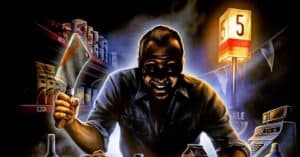
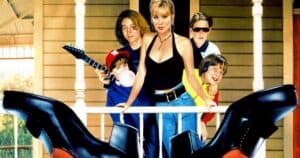
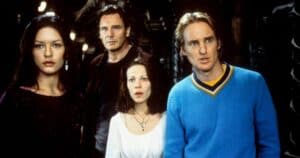

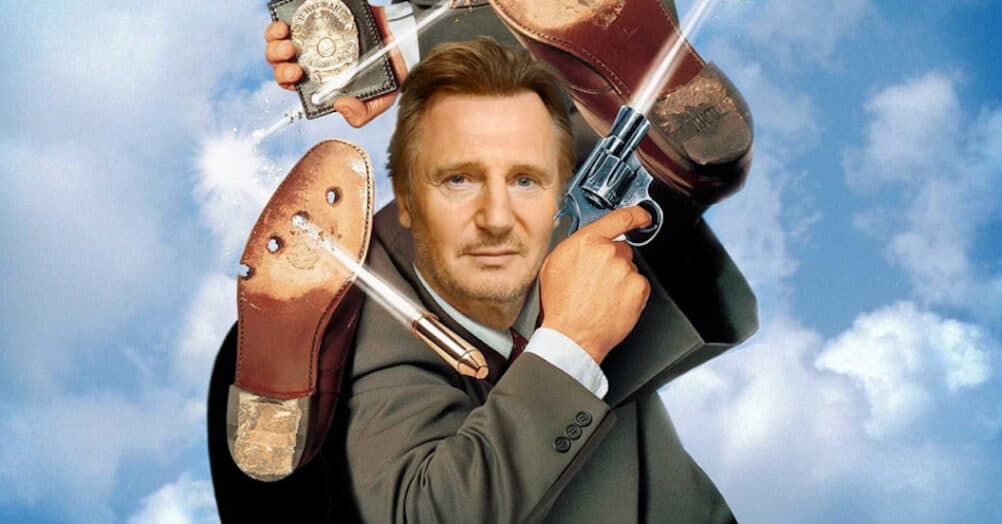
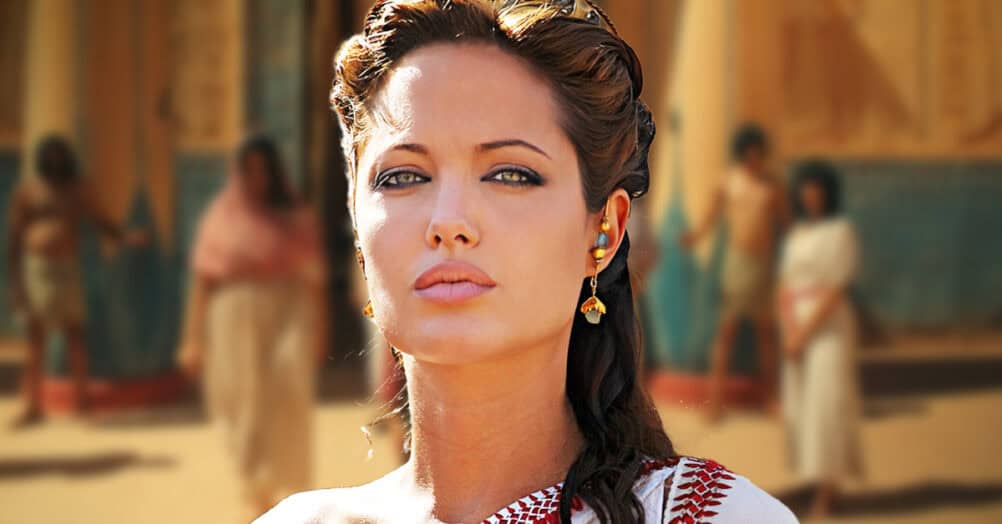
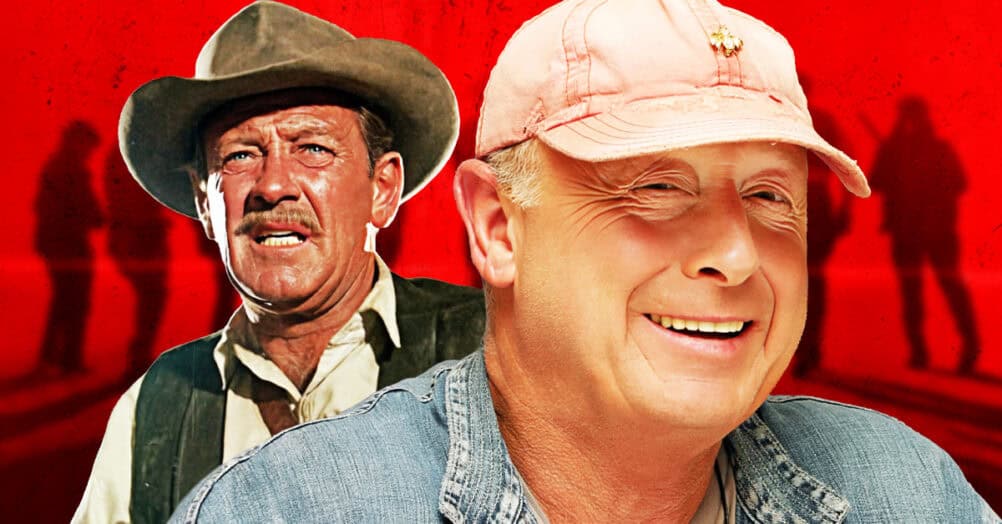
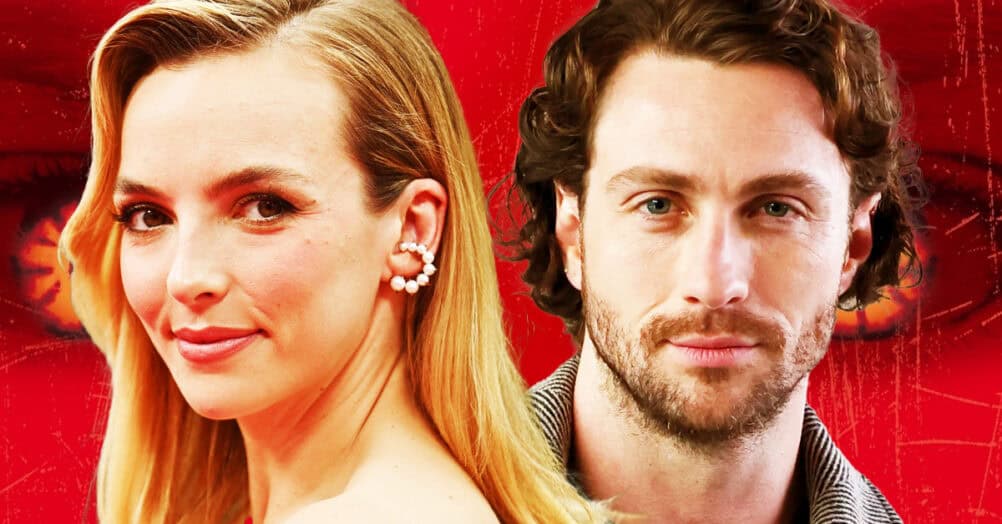
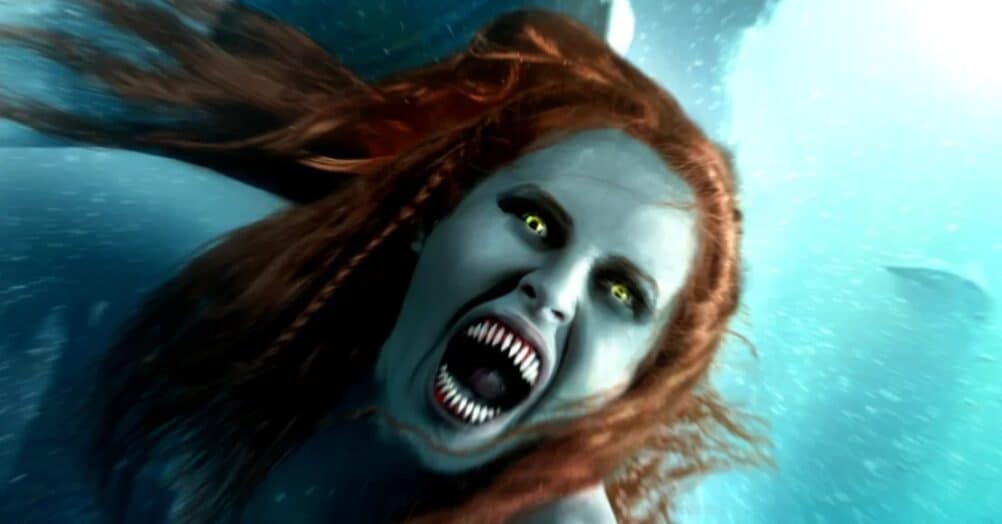
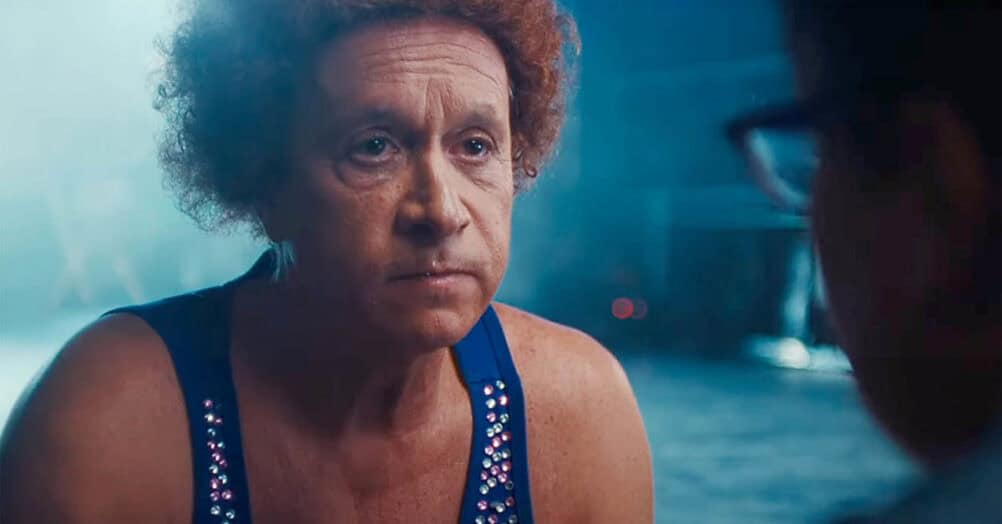
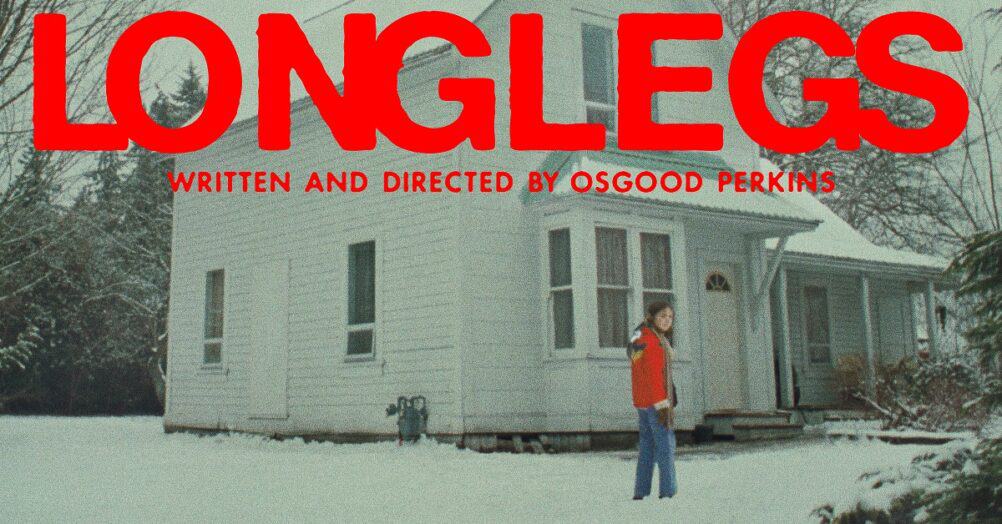

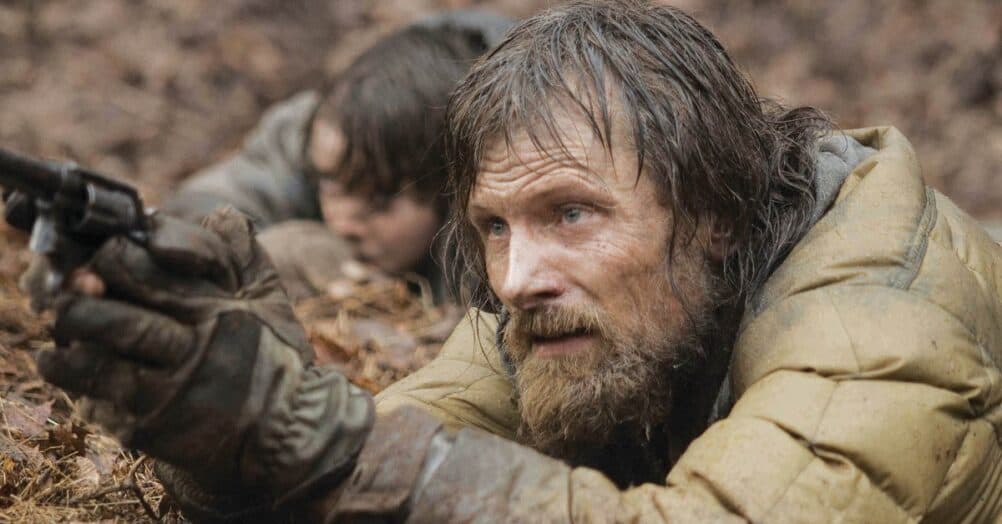

Follow the JOBLO MOVIE NETWORK
Follow us on YOUTUBE
Follow ARROW IN THE HEAD
Follow AITH on YOUTUBE